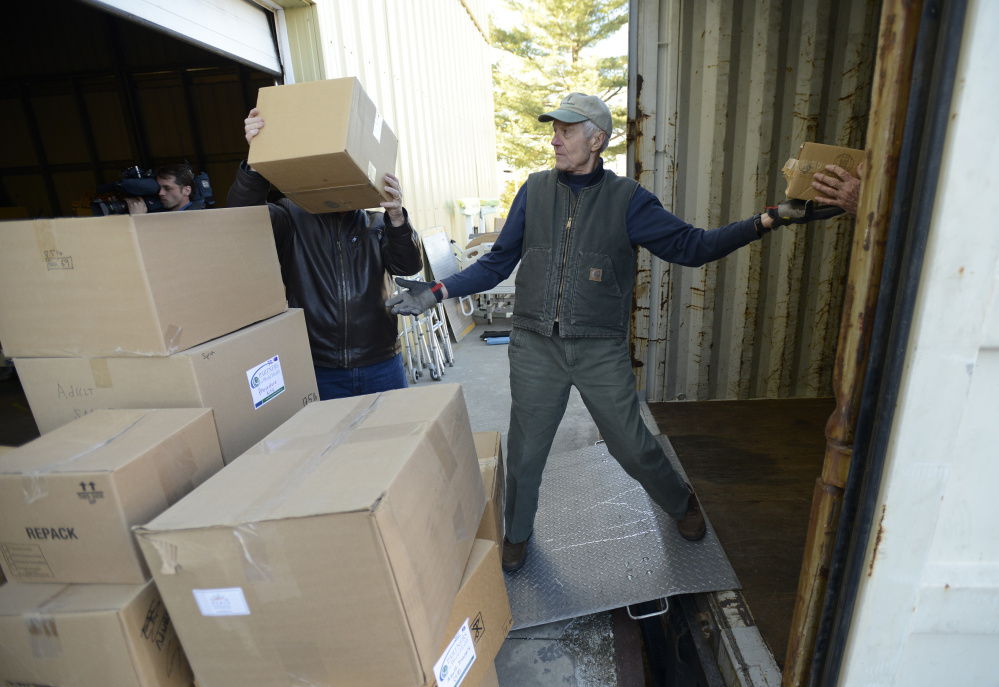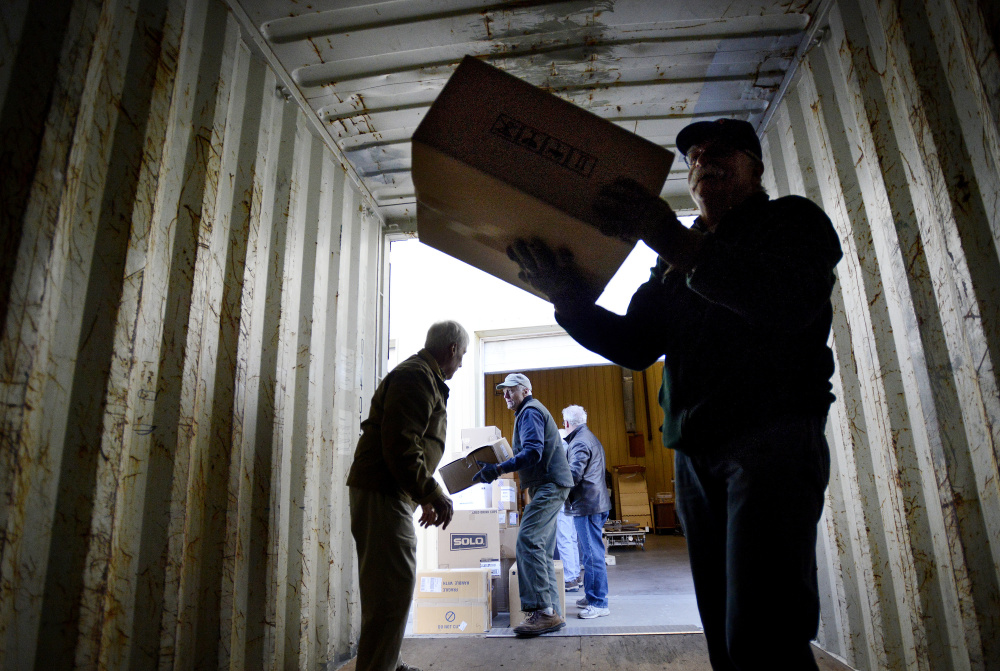“614!” a volunteer shouted at Suzan Mistler-Belcher on Monday at a Portland warehouse, where she and her fellow Partners for World Health volunteers were working to load a tractor-trailer full of medical supplies.
“Baby bottles!” Mistler-Belcher shouted back, and when the number and item written on the box matched a master list she was working from, Mistler-Belcher checked it off a list of 800 items being sent to help Syrian refugees and residents of the war-ravaged country.
The truck carrying 40,000 pounds of medical supplies was headed Monday afternoon to Boston, where it would be loaded as a container on a ship headed to Turkey. In Turkey, volunteers working with NuDay Syria, a New Hampshire-based nonprofit, will accept the shipment and load the supplies onto various trucks headed for various “underground” hospitals in Syria, said Elizabeth McLellan, founder of Partners for World Health. It will take about a month before the supplies that left the 15,000-square-foot Portland warehouse at Riverside Industrial Parkway end up in Turkey, she said.
The nonprofit with its headquarters in South Portland began in McLellan’s home in 2007. The nonprofit has expanded quickly, and it is now at three locations in Greater Portland, plus additional locations in Bangor and Presque Isle.
Partners for World Health accepts discarded medical supplies that would have otherwise gone to the landfill and donates them to any number of Third World countries – such as Syria, Bangladesh, Pakistan, Haiti, Nepal and Uganda. McLellan worked in Saudia Arabia for nine years in the 1980s and 1990s and saw the great need for medical supplies. She also goes overseas to volunteer, and in January she’s heading to Turkey to help train Syrian doctors and nurses, her second trip there in less than a year.
“702!” a volunteer said.
“Syringes!” Mistler-Belcher replied, and another item was removed from the list. Baby bottles, surgical equipment, IVs, incubators, mattresses and many other items were packed into the truck.
Volunteers rolled a crate filled with dozens of crutches and walkers onto the truck.
McLellan said it’s important to remember that most Syrians are not terrorists, but are civilians oppressed by the Syrian government or afraid of ISIS, the Syrian-based terrorist group taking responsibility for the attacks Friday that left more than 120 people dead in Paris.
“These are people who are trying to get away from the fighting,” McLellan said. “They deserve food and water and medical supplies and health care, too. We are trying to do our little bit.”
McLellan, a former nursing administrator at Maine Medical Center, said the supplies sent to Syria are focused on treating severe wounds, head injuries and other common war injuries.
Unstable conditions in Syria have prompted hundreds of thousands of Syrians to flee and head to countries in Europe, including Germany and the United Kingdom. President Obama has announced that the United States will accept 10,000 Syrian refugees.
McLellan said while only a handful of states have such programs, all states should start a similar program, because the discarded medical supplies end up being thrown away. She said the program has cut down landfill costs borne by hospitals, while simultaneously helping the environment and people in need.
All medical equipment is tested to make sure the items are working, said McLellan, standing next to an anesthesia machine.
Mistler-Belcher, of Cape Elizabeth, said she started volunteering in February and she helps as much as she can.
“We work hundreds of hours and we don’t think twice about it,” she said. “All of these boxes would end up in a landfill. Each of these boxes is making a difference in people’s lives.”
Send questions/comments to the editors.





Comments are no longer available on this story